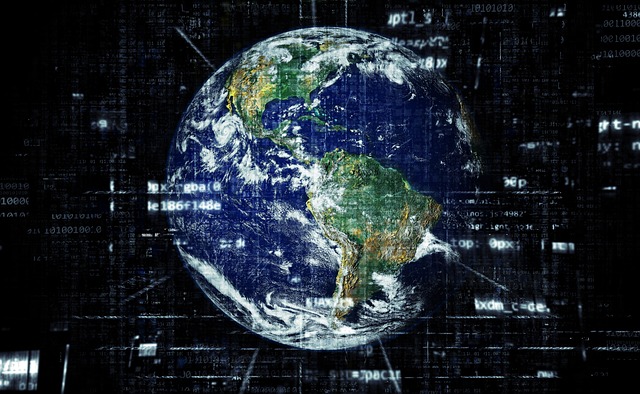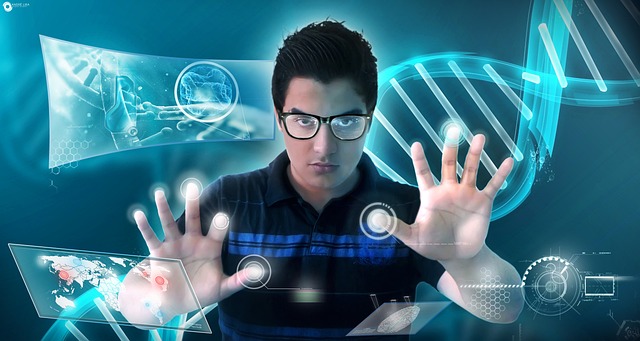# AI Technology: Transforming Industries and Enhancing Everyday Life Through Intelligent Solutions
Artificial Intelligence (AI) has emerged as a transformative force across various sectors, reshaping the way businesses operate and how individuals interact with technology in their daily lives. The rapid advancements in AI technology have not only streamlined operations but also fostered innovation, leading to smarter solutions that enhance efficiency and productivity. This article delves into the multifaceted impact of AI, exploring its applications in diverse industries and the tangible benefits it brings to everyday life.
## Revolutionizing Industries
A multitude of industries is experiencing a paradigm shift due to the integration of AI technologies. In healthcare, for instance, AI is revolutionizing diagnostics and patient care. Machine learning algorithms analyze vast datasets to identify patterns that may elude human practitioners. This capability allows for earlier detection of diseases and personalized treatment plans tailored to individual patient needs. Consequently, the potential for improved health outcomes has never been higher.
Manufacturing is another sector where AI is making significant strides. Predictive maintenance powered by AI algorithms helps companies anticipate equipment failures before they occur, minimizing downtime and reducing costs. Moreover, robotics equipped with AI capabilities are enhancing production lines, enabling greater precision and efficiency. As a result, manufacturers can scale operations while maintaining high standards of quality.
In the realm of finance, AI technologies are transforming how institutions assess risk and manage investments. Algorithms analyze market trends and consumer behavior, allowing for more informed decision-making. Robo-advisors, powered by AI, provide personalized investment advice based on individual financial goals, making wealth management accessible to a broader audience. This democratization of financial services exemplifies how AI can foster inclusivity in traditionally exclusive sectors.
## Enhancing Everyday Life
Beyond the confines of industry, AI is significantly enhancing everyday life, making it more convenient and efficient. Smart home devices, such as voice-activated assistants and automated lighting systems, are becoming commonplace. These technologies not only simplify daily tasks but also promote energy efficiency, contributing to sustainable living. By harnessing AI, homeowners can optimize their energy consumption, leading to reduced utility bills and a smaller carbon footprint.
Transportation is another area where AI is having a profound impact. The advent of autonomous vehicles promises to redefine mobility, enhancing safety and reducing traffic congestion. AI algorithms process real-time data from various sensors, enabling vehicles to make split-second decisions that prioritize passenger safety. Furthermore, ride-sharing platforms leverage AI to optimize routes and reduce wait times, improving the overall user experience.
Education is also undergoing a transformation thanks to AI. Personalized learning platforms utilize AI to adapt curricula to individual students’ learning styles and paces. This tailored approach not only enhances comprehension but also fosters engagement, making education more accessible and effective. As AI continues to evolve, the potential for creating inclusive learning environments is immense, paving the way for future generations to thrive.
## The Future of AI Technology
Looking ahead, the potential applications of AI technology are boundless. The convergence of AI with other emerging technologies, such as the Internet of Things (IoT) and blockchain, is poised to drive further innovation. For instance, smart cities powered by AI can leverage data from connected devices to enhance urban planning, improve public safety, and optimize resource allocation. This integration promises to create more livable and sustainable environments.
Ethical considerations surrounding AI development are paramount. As AI systems become increasingly autonomous, the need for robust frameworks to ensure accountability and transparency is critical. Policymakers and technologists must collaborate to establish guidelines that promote responsible AI use while mitigating risks associated with bias and privacy concerns. Striking a balance between innovation and ethical considerations will be essential in shaping the future landscape of AI.
Moreover, the workforce is likely to undergo significant changes as AI continues to evolve. While some jobs may be displaced, new opportunities will emerge that require uniquely human skills, such as creativity, emotional intelligence, and strategic thinking. Emphasizing education and reskilling will be vital to prepare the workforce for this transition, ensuring that individuals can thrive in an AI-driven economy.
## Conclusion
AI technology is undeniably transforming industries and enhancing everyday life through intelligent solutions. From revolutionizing healthcare and manufacturing to improving transportation and education, the impact of AI is profound and far-reaching. As we look to the future, the potential for AI to drive innovation and foster sustainable practices is immense. However, navigating the ethical implications and preparing the workforce for change will be crucial in harnessing the full potential of AI. By embracing these advancements responsibly, society can unlock a future where AI not only serves as a tool for efficiency but also as a catalyst for positive change.











